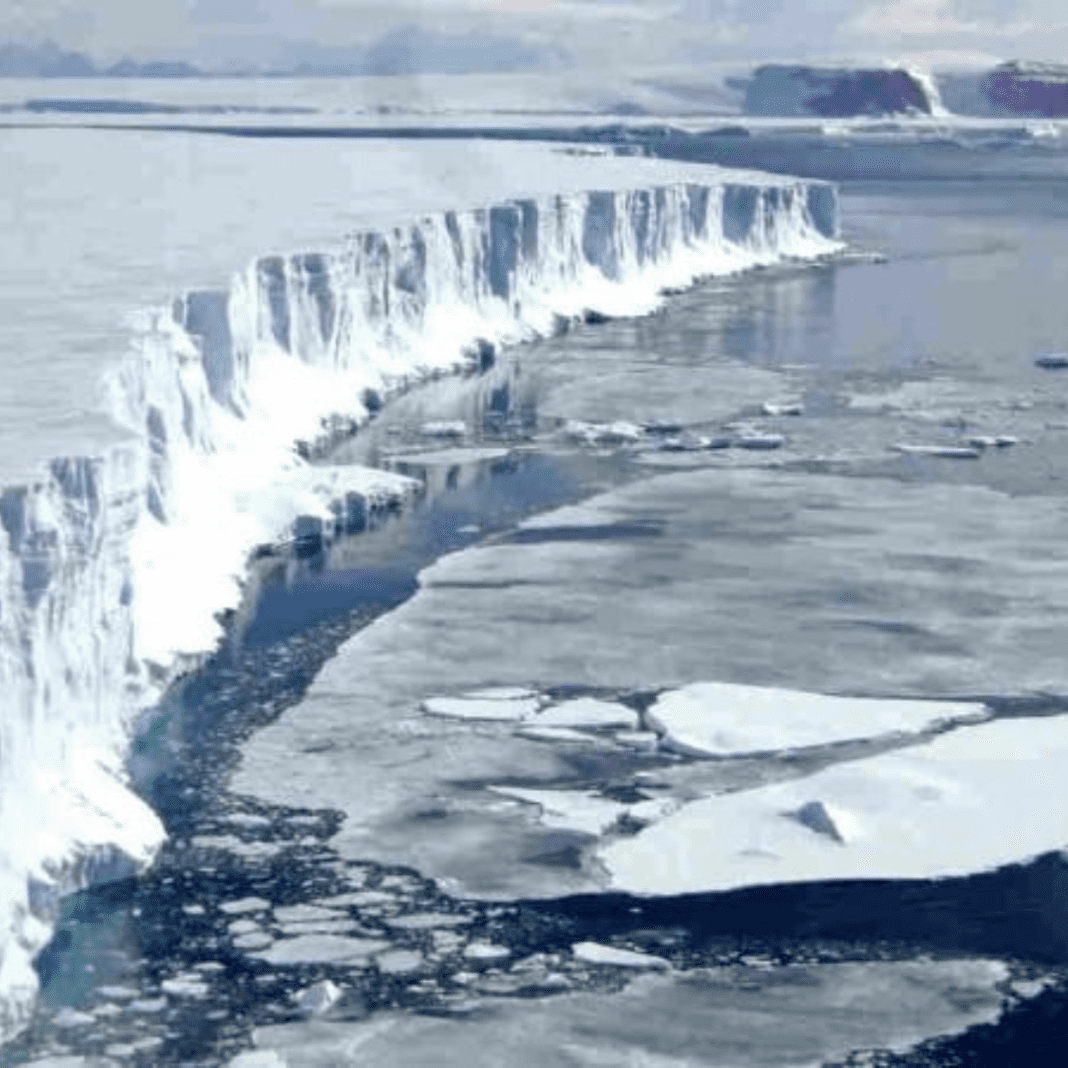A new study has found that Antarctica is approaching a critical “tipping point” for melting Antarctic ice sheets. This tipping point is driven by warm ocean water that is seeping between the ice and the land it rests on. Scientists have long studied how warming oceans impact ice melt, but this study reveals that the situation might be more urgent than previously thought.
Melting Antarctic Ice Sheets and Rising Seas
The research, published in the journal Nature Geoscience, points out that current models used by the United Nations’ Intergovernmental Panel on Climate Change (IPCC) do not fully account for this new type of melting. These models have consistently underestimated how much ice has been lost so far. As ocean temperatures continue to rise due to human-caused global warming, the melting of Antarctic ice sheets is speeding up. This could lead to higher global sea levels, posing a significant risk to coastal communities around the world.
The Process of Runaway Melting
According to the study, when ocean temperatures increase, it can trigger a tipping point. Beyond this tipping point, warm ocean water can intrude underneath the ice sheet in an uncontrolled manner, causing what the researchers call “runaway melting.” Antarctic ice sheets sit on bedrock and extend out to sea, where they float on the water. The area where the ice meets the land is called the grounding zone. Warm seawater is now reaching this zone and even moving further inland beneath the floating ice.
Lead author Alexander Bradley, a researcher with the British Antarctic Survey, explains that even a slight increase in water temperature can accelerate this process. The water melts the ice from below, and the intrusion of warm water can extend from just 100 meters to tens of kilometers inland. Every tenth of a degree of warming brings these tipping points closer, making the situation more urgent.
Areas at High Risk
Some parts of Antarctica are more vulnerable to this process than others. The shape of the land beneath the ice includes valleys and cavities where seawater can pool. This makes it easier for warm water to get beneath the ice and speed up melting. The Pine Island glacier, currently the largest contributor to sea-level rise in Antarctica, is particularly at risk. Its land slope allows more seawater to intrude, making it highly susceptible to runaway melting.
Updating Scientific Models
The study emphasizes the need to update scientific models to include this new understanding of ice melt. More accurate models can help predict future sea-level rise and allow for better preparation. Bradley stresses that we may soon pass these tipping points without urgent climate action, leading to irreversible changes.
The Need for Urgent Climate Action
This new discovery highlights the importance of taking immediate action to combat global warming. If we do not reduce greenhouse gas emissions and limit global temperature rise, we risk triggering these tipping points. Once passed, the process of runaway melting will be difficult, if not impossible, to stop.
The findings highlight the interconnectedness of our planet’s climate system. What happens in the remote and icy regions of Antarctica can have far-reaching effects on communities worldwide. Rising sea levels can lead to more frequent and severe coastal flooding, threatening homes, infrastructure, and ecosystems.
The study on Antarctic ice melt presents a warning about the potential for runaway melting driven by warm ocean water. It calls for urgent climate action to prevent these tipping points and stresses the need to update scientific models to better predict and prepare for future sea-level rise. By understanding and addressing the causes of global warming, we can work to protect our planet and ensure a safer future for all.





